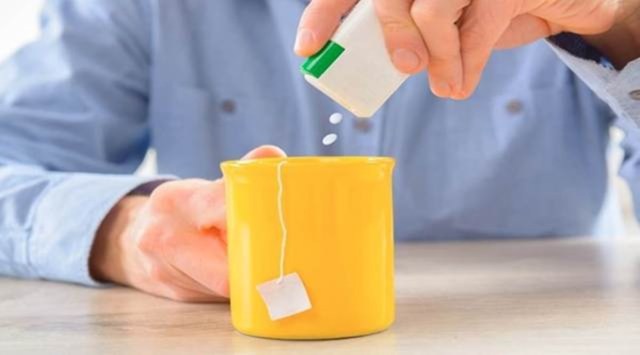The World Health Organisation (WHO) may categorise one of the most commonly used artificial sweeteners, aspartame, as possibly carcinogenic to humans, according to reports. This comes just over a month after the agency recommended against using all non-sugar sweeteners for controlling weight by non-diabetics.

“The result of both evaluations will be made available together, on July 14, 2023,” said WHO in a mail. The inter-government agency said: “IARC has assessed the potential carcinogenic effect of aspartame (hazard identification). Following this, the Joint FAO/WHO Expert Committee on Food Additives (JECFA) will update its risk assessment exercise on aspartame, including the reviewing of the acceptable daily intake and dietary exposure assessment for aspartame.”
What is aspartame?
Story continues below this ad
Aspartame is an artificial sweetener that is 200 times sweeter than normal sugar. It is available in powder form for table-top use in tea and coffee. It is also commonly used in colas, chewing gums, and packaged desserts. In fact, diet colas can be zero calories because they use artificial sweeteners instead of sugar.
Aspartame does contain calories. It can be broken down completely by the digestive system and hence doesn’t lead to spikes in blood glucose levels after consumption like normal sugar.
What do doctors say?
Dr Anoop Misra, Chairman of Fortis CDOC Hospital for Diabetes and Allied Sciences, says that people should be mindful of what they are consuming and not think artificial sweeteners are risk-free. He especially warned against diet colas that people consume not knowing they contain a lot of artificial sweeteners, including aspartame.
“There is evidence linking use of aspartame to higher levels of cancer in the population — the French study demonstrated this. I would consider this to be moderate quality evidence. They have observed the effects in a population and there can always be confounders like people reporting their use of sweeteners. However, the study should have been enough to sound alarms. It should be enough to warn people to be careful of what they are consuming,” said Dr Misra.
Story continues below this ad
The French study he referred to was a population based cohort of 100,000 who were followed for a median 7.8 years. It found that there was an overall increase in risk for cancers among those who used artificial sweeteners, in particular aspartame and acesulfame-K. The study found higher risks for breast and obesity-related cancers in people who consumed the sweeteners.
Dr V Mohan, Chairman of Dr Mohan’s Diabetes Specialities Centre-Chennai, said: “There have been several discussions since the WHO recommendations came out last month. I do not know whether there has been some new evidence since. But, if you look at the studies quoted by the previous WHO report, they themselves said all the evidence they have quoted were of low to very low certainty. We do not have very good evidence to show that it leads to adverse effects in humans, let alone cancers and mortality.”
He said: “The problem is the calories that people end up consuming. If you have a dessert with artificial sweetener, the calories that come from sugar are not there but the calories that come from ghee, maida and everything else are still there.”
Dr Mohan said that consuming one or two-odd tablets of aspartame in tea or coffee, which is what he recommends to his diabetic patients, leading to cancer is a long stretch as the dose is 1,000 times lower than the daily allowed dosage.
Story continues below this ad
“Having said this, there is never any smoke without fire. We need long term, good quality studies to understand the impacts of artificial sweeteners,” he cautioned.
What did WHO previously say?
The WHO in May recommended against the use of all artificial sweeteners to achieve weight loss or prevent lifestyle diseases such as diabetes. The recommendation did not apply to diabetics, the inter-government agency clearly said. “WHO suggests that non-sugar sweeteners (NSS) not be used as a means of achieving weight control or reducing the risk of non-communicable diseases,” was the highlight of a 90-page report based on nearly 283 studies.
The analysis said that there could be some weight loss and reduction in body mass index in the short term as the sweeteners bring down the calories consumed through sugar, but in the long run they were associated with weight gain and increased risk of diabetes, cardiovascular diseases, and mortality.

































